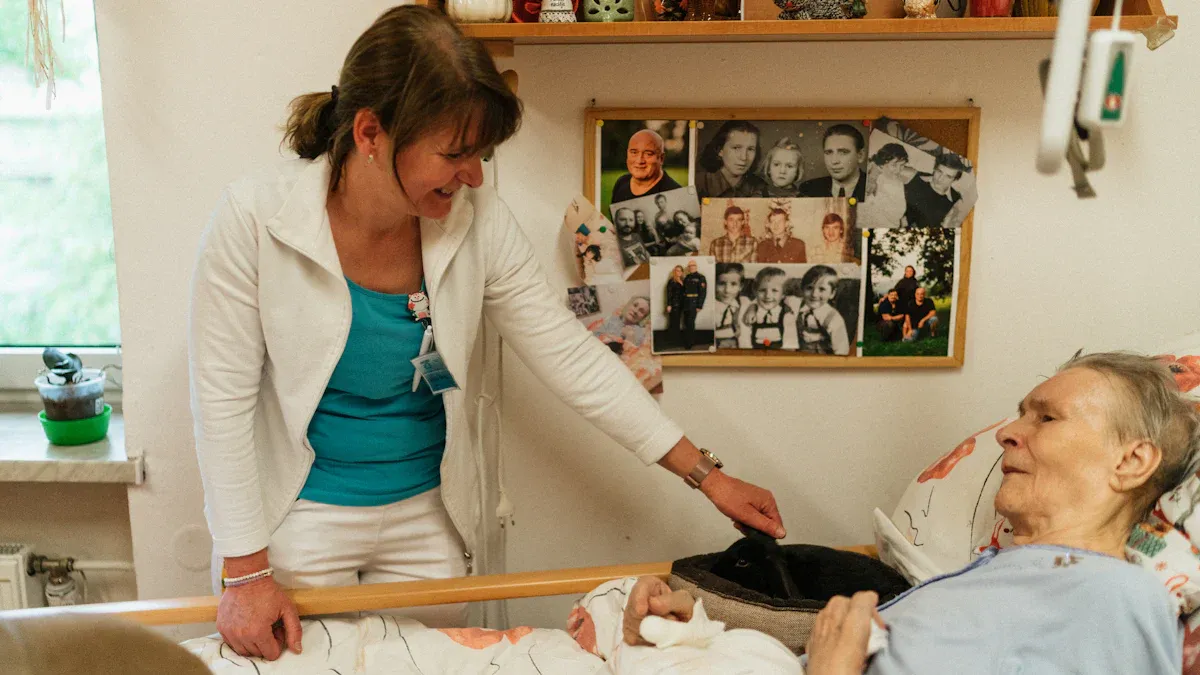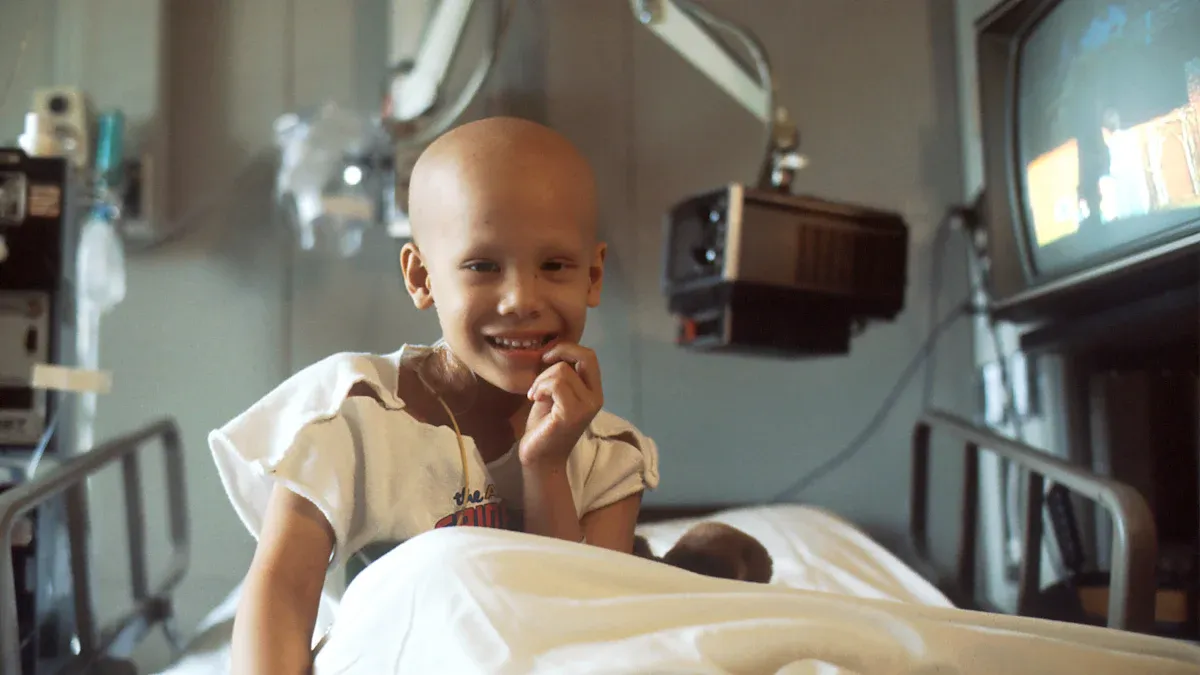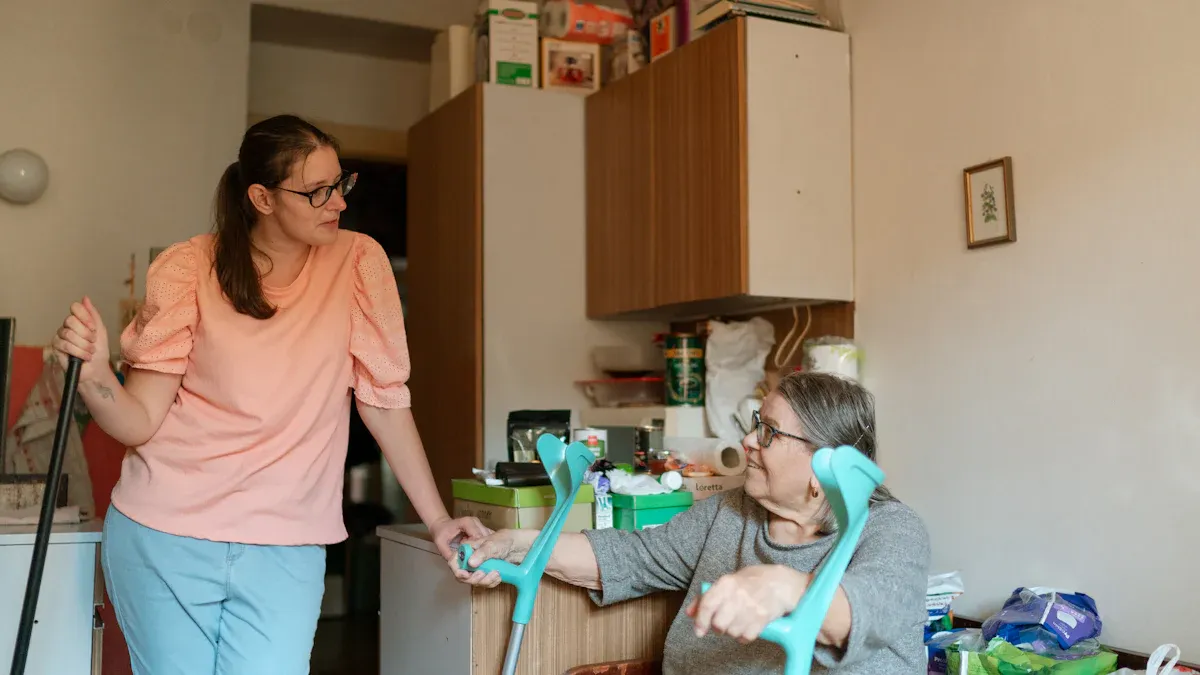Why Routine Matters in Cancer Caregiving

You face many tough days as a cancer caregiver. Sometimes, everything feels unpredictable. When you set up a routine, you give both yourself and your loved one a sense of order. The Importance of Routine in Cancer Caregiving shines through when you see less stress and more calm in your daily life. Small steps, like sticking to regular mealtimes or medication schedules, can help you feel more in control. You can do this.
Key Takeaways
Routines bring order and predictability, helping reduce stress and uncertainty in cancer caregiving.
Following a daily and weekly routine supports both your loved one’s and your own emotional and physical health.
Organizing tasks with routines helps you manage responsibilities and avoid feeling overwhelmed.
Building self-care into your routine protects your well-being and improves your ability to care for others.
Flexibility in routines allows you to adjust as needs change, making caregiving more manageable over time.
The Importance of Routine in Cancer Caregiving

Reducing Uncertainty
When you care for someone with cancer, each day can bring new surprises. You might feel like you never know what will happen next. That’s where routines step in. Routines give you and your loved one a sense of predictability. You know what comes next, and that helps you feel more prepared.
A routine acts like a roadmap. It guides you through the day, even when things feel out of control.
You can set up regular times for meals, medication, and rest. This structure helps you manage tasks and lowers your stress. When you use planners or reminders to track appointments and treatments, you spend less time worrying about what you might forget. You also help your loved one feel safe and cared for. The Importance of Routine in Cancer Caregiving is clear when you see how much calmer your days become.
Here are a few ways routines help reduce uncertainty:
You set clear expectations for yourself and your loved one.
You organize tasks, so nothing important slips through the cracks.
You create a sense of normalcy, even during tough times.
When you talk with your care team and discuss care goals early, you know what to expect. This helps you adapt as things change and keeps everyone on the same page. The Importance of Routine in Cancer Caregiving shows up in these small, steady steps.
Supporting Well-Being
Routines do more than just keep you organized. They support your emotional and physical health. When you follow a routine, you give yourself and your loved one a sense of purpose. You both know what needs to happen, and that can lift your mood.
Taking time for self-care, like eating well and getting enough sleep, boosts your emotional stability.
Sharing caregiving duties and setting boundaries helps you avoid burnout.
The CareSTEPS study found that caregivers who followed structured routines felt less depression and anxiety. They also felt less overwhelmed by their responsibilities. This shows that The Importance of Routine in Cancer Caregiving goes beyond just getting things done—it helps you feel better, too.
You can also use routines to support your own well-being:
Schedule time for yourself, even if it’s just a few minutes.
Join a support group or talk to a counselor.
Make time for hobbies or activities you enjoy.
Remember, you matter too. Taking care of yourself helps you take better care of your loved one.
When you build routines that include self-care, you protect your mental health. You also create a positive environment for your loved one. The Importance of Routine in Cancer Caregiving is about finding balance, reducing stress, and making each day a little easier for both of you.
What Is a Routine?
A routine is a set of regular actions you follow each day or week. In cancer caregiving, routines help you and your loved one know what to expect. They bring order to your days and make life feel less overwhelming. You do not have to plan every minute. Instead, you create a pattern that helps you manage care, support well-being, and find time for yourself.
Daily Structure
Your daily routine can include simple steps that make caregiving smoother. These steps help you stay organized and lower stress for both you and your loved one.
Start the day by checking on your loved one’s needs.
Prepare meals at regular times to keep energy up.
Set reminders for medications. You might use a pill box, alarms, or place medicines where you will see them, like near the breakfast table.
Write down a daily medication plan and share it with anyone helping you.
Take short breaks to recharge, even if it’s just a few minutes to breathe.
Use tools like the Caregiver Strain Index to check how you are feeling.
Reach out for support from friends, family, or community groups.
Try stress-management activities, like deep breathing or listening to music.
Tip: Place medications in a spot you visit often, like the kitchen, to help you remember each dose.
Weekly Tasks
Weekly routines help you balance caregiving with your own needs. They give you a chance to plan ahead and take care of yourself.
Schedule a weekly check-in with your loved one. Talk about feelings, share worries, and listen to each other.
Plan time for your own hobbies or activities that make you happy.
Use a family calendar or app to track appointments and tasks.
Set boundaries by saying no to extra demands when you feel stretched.
Ask for help from friends, family, or local caregiver programs.
Take breaks and use respite care if you need time off.
Keep up with healthy habits, like eating well and staying active.
Weekly Task | Purpose |
|---|---|
Communication check-in | Share feelings and support |
Family calendar update | Track appointments and events |
Personal time | Reduce stress and recharge |
Ask for help | Lighten your caregiving load |
A routine does not have to be perfect. You can adjust it as things change. The goal is to make each day and week feel a little more manageable for you and your loved one.
Key Benefits
Managing Responsibilities
You juggle many tasks as a cancer caregiver. Sometimes, it feels like you have a never-ending to-do list. Routines help you manage these responsibilities so you do not feel overwhelmed. When you set up a routine, you know what needs to happen and when. This structure makes it easier to keep track of important tasks and avoid missing anything.
Here are some ways routines help you handle caregiving duties:
Synchronize tasks with other caregivers to avoid confusion.
Use the 4Ds method: Do, Defer, Delegate, Delete. This helps you focus on what matters most.
Set time limits for each task. This keeps you from spending too long on one thing.
Schedule regular breaks and self-care activities.
Keep your space organized to reduce stress.
Ask for help when you need it.
Tip: Try using a calendar or app to track appointments and daily tasks. This can help you stay on top of everything.
You can also simplify routines by prepping meals ahead of time, setting up automatic bill payments, and shopping online. Building a support system with family, friends, or paid services can lighten your load. The Importance of Routine in Cancer Caregiving shows up when you see how much easier it is to manage your day.
Reducing Decision Fatigue
Making decisions all day can wear you out. You might feel tired, anxious, or even guilty about your choices. This is called decision fatigue. It happens when you have to make too many choices, big or small, every day.
Routines help you cut down on the number of decisions you need to make. When you follow a set plan, you do not have to think about every little detail. This saves your energy for the things that matter most.
Schedule personal "me" time to recharge.
Learn to say no to tasks that are not essential.
Practice mindfulness or deep breathing to calm your mind.
Ask for help or find home health care support.
Watch for signs of burnout, like trouble focusing or feeling sad for a long time.
Remember, treating yourself with kindness is just as important as caring for your loved one.
You can also group similar tasks together, use time-blocking, and set boundaries to protect your mental health. These habits help you stay focused and make better decisions. The Importance of Routine in Cancer Caregiving is clear when you notice less stress and more peace in your day.
Encouraging Self-Care
You might feel like you do not have time for yourself, but self-care is not selfish. It is necessary. When you build self-care into your routine, you protect your health and well-being. Studies show that caregivers who make time for sleep, healthy eating, and calming bedtime rituals feel less stressed and cope better.
Note: Taking care of yourself helps you take better care of your loved one.
Some self-care practices fit easily into your daily routine:
Self-Care Practice | How It Helps You |
|---|---|
Keeps you strong and healthy | |
Spiritual growth | Gives you meaning and purpose |
Social connections | Offers support and comfort |
Stress management | Lowers anxiety and boosts mood |
Try to schedule at least one enjoyable activity each week, like a hobby or time with friends. Even small steps, like eating a healthy meal or taking a short walk, can make a big difference. Caregivers who focus on self-care feel more prepared and confident in their role.
You may sometimes skip self-care because you feel too busy or responsible. But routines make it easier to fit these important habits into your day. Over time, you will notice better mood, less stress, and more energy to care for your loved one.
Building and Maintaining Routine

Essential Elements
You want your routine to last. Start by focusing on what matters most for you and your loved one. Make self-care a priority. This means getting enough rest, eating healthy meals, and taking breaks when you need them. Use planners or checklists to keep track of daily tasks and appointments. Stay connected with your healthcare team. Good communication helps you feel more confident and prepared.
Ask for help from family, friends, or support groups.
Set clear boundaries to protect your time and energy.
Use reminders for medications and important tasks.
Include activities that bring comfort, like listening to music or journaling.
Tip: Small steps add up. Even a five-minute walk or a quick chat with a friend can make your day better.
Flexibility
Cancer caregiving can change quickly. Flexibility helps you adjust when things do not go as planned. Try starting with small, easy habits. For example, stretch in the morning or take a short walk during breaks. Use caregiving tasks, like helping with movement, as chances to stay active. Mind-body activities like yoga or deep breathing can lower stress.
Keep your routine simple so you can change it if needed.
Talk with your employer about flexible work options or support programs.
Use technology, like scheduling apps, to stay organized.
Find support from friends, fitness groups, or online communities.
Remember, it is okay to change your routine. What works today might need to change tomorrow.
Overcoming Challenges
You may face tough days. Sometimes you feel tired, worried, or alone. Many caregivers struggle with these feelings. You can overcome these challenges by reaching out for help and using community resources.
How to Overcome | |
|---|---|
Feeling overwhelmed | Join a support group, talk to a counselor |
Physical fatigue | Take breaks, ask others to help with tasks |
Money worries | Seek financial advice, use local assistance programs |
Emotional stress | Practice mindfulness, share your feelings |
Family conflicts | Communicate openly, set clear boundaries |
Make a simple to-do list each day.
Share caregiving duties with others.
Use respite care for breaks.
Stay connected with your healthcare team for advice and support.
You are not alone. Many people want to help. Accepting support makes you a stronger caregiver.
You bring calm and comfort to your loved one when you follow a routine. Routines help you lower stress, stay organized, and improve daily life. Experts say you should watch for your loved one’s unique needs and adjust routines as things change. Start with small steps and let your routine grow with you. Remember, you deserve care too. Reach out for support, take breaks, and know you are not alone on this journey.
FAQ
How do I start a routine if every day feels different?
Start small. Pick one thing, like a set mealtime or bedtime. Stick with it for a week. If things change, adjust your plan. You do not need a perfect routine. Just find what works for you and your loved one.
What if my loved one resists the routine?
Try to involve your loved one in planning. Ask what feels comfortable for them. Use gentle reminders. If something does not work, change it together. Remember, routines should help both of you feel better.
Can I still have a routine if I work or have other family duties?
Yes! Use a calendar or phone reminders to keep track. Share tasks with others when you can. Even small routines, like a morning check-in or evening walk, can make a big difference.
What should I do when the routine gets interrupted?
Interruptions happen. Take a deep breath. Focus on the next step you can do. It is okay to skip or change things. The goal is to make life easier, not harder.
See Also
Recognizing Signs And Treatment Options For Duodenal Cancer
Essential Information About Carcinoid Tumors You Must Understand
A Comprehensive Guide To Anal Cancer Causes And Symptoms
Key Facts About Symptoms Of Adrenocortical Carcinoma Explained

